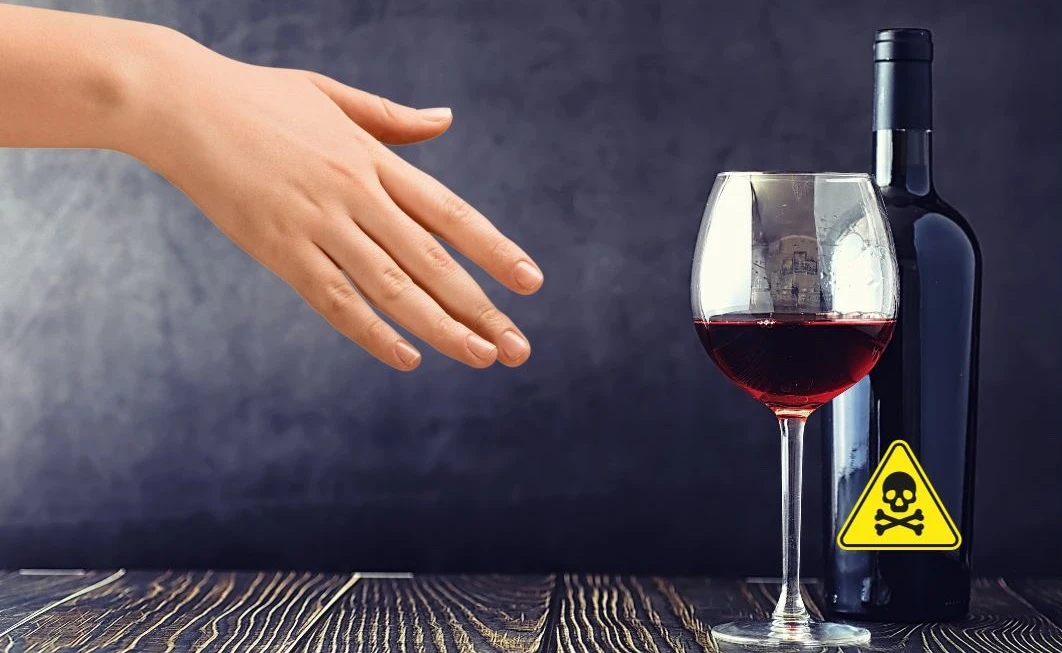The Happiness Paradox: You Don’t Get What You Think
Imagine that the very things you thought would bring you happiness not only fall short of delivering true joy but might even be causing your unhappiness. This is what we call the happiness paradox.
It’s a profound concept that, once fully understood, can completely transform your perspective on life.
But this isn’t about blind faith or a handful of inspirational quotes. We’re about to delve into this subject with a keen and open mind, examining it meticulously and thoughtfully.
If you approach this with an open mind, scrutinize every word you’re about to read, and engage your logical and objective thinking, you’re on the path to unlocking the secret to unwavering happiness.
We’ve now reached a crucial point. In the previous article, “The Illusion of Beauty,” you discovered that there’s no external factor or person that possesses a magical ingredient to make you happy. Instead, it’s your mind that generates feelings based on its perception of itself and its surroundings.
That’s why when two people look at the same object, one might experience disgust while the other finds sheer delight. The emotions are undeniably real, but they’re created by a mind that cannot perceive reality objectively. It’s a mind that creates illusions and then mistakes them for reality.
If you haven’t read “The Illusion of Beauty” yet, please read it before continuing with this article. I want to share this information to the best of my ability, but this topic is extensive and challenges many of the beliefs we’ve grown up with. So, it’s important to take it step by step in a logical order, much like climbing a staircase one step at a time.
The Bloody Thief
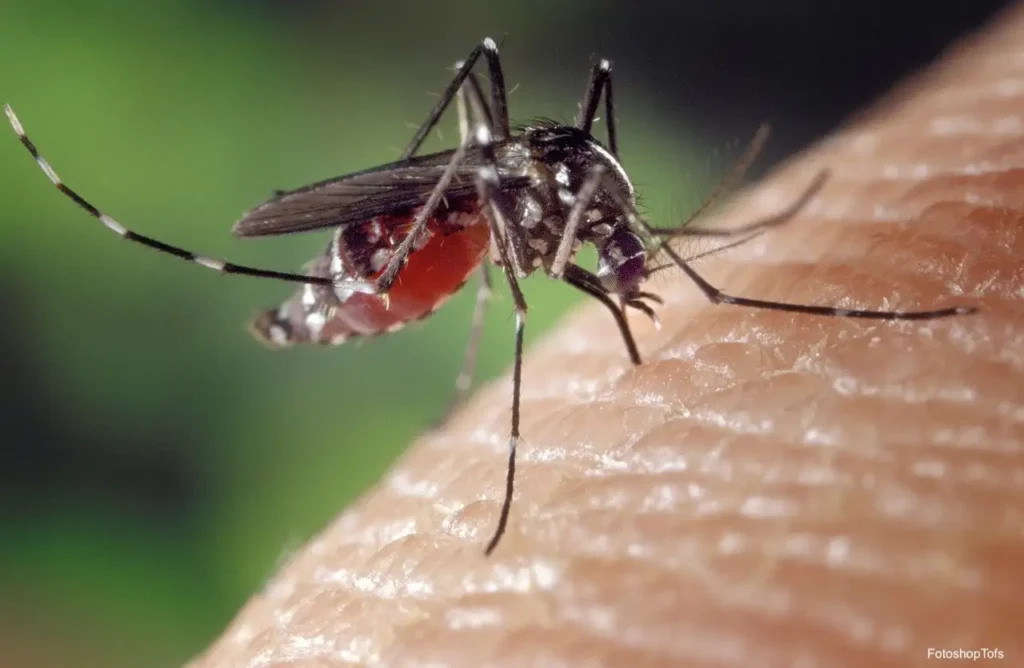
Recall the last time a mosquito bit you? We’re familiar with the discomfort that follows once it’s had its fill of our blood. When a mosquito locates its target, it uses its needle-like proboscis to pierce your skin in search of a blood vessel. It then releases saliva to prevent your blood from clotting. This saliva prompts your immune system to kick in, leading to the production of histamine. The histamine response is what makes you feel itchy.
What’s your immediate response when you feel an itch? Chances are, you’ll start to scratch it.
But why?
Simply put, an itch is an uncomfortable sensation, and scratching is your way of trying to make it go away.
When you scratch that itch, it actually feels quite satisfying, doesn’t it?
Here’s a peculiar question to ponder: have you ever taken the time to truly understand why scratching an itch feels so good? It might seem like an unusual question, but it’s an important one to explore.
Now, consider this scenario: You desperately want to scratch, but instead, you resist the urge and spend a full minute attentively observing the itch. While you do this, your mind has already projected itself into the future by one minute. The anticipation to scratch intensifies with each passing second. Then, when that long-awaited minute has elapsed, you finally give in and scratch the bite.
Honestly, doesn’t that feel even more satisfying than if you had scratched right from the beginning?
Why does scratching feel so good?
The Scratch Experiment
Let’s try out a little experiment.
- Think about how you typically scratch yourself when dealing with a mosquito bite. Is it firm or gentle, intense or soft, fast or slow? Is it a long, continuous scratch or short, quick strokes? Perhaps you use your nails to create small star-shaped marks (like some of us do).
- Now, select a spot on your skin, like the back of your hand, but make sure that it’s not actually itchy.
- Apply the same “scratching technique” you use for mosquito bites and start scratching.
- How long can you endure it?
After just a few seconds of scratching, you probably already felt some discomfort, right? In fact, it’s safe to assume that right from the moment you began scratching, it never felt good. Would you agree that at no point did it feel pleasurable?
If we follow this line of reasoning, we can conclude that scratching itself isn’t inherently pleasurable. If it were, scratching should always feel good and never be uncomfortable. However, the reality is that we typically scratch ourselves only when we’re experiencing some form of itch or discomfort.
But you might be thinking, “Hold on, scratching feels pleasurable when you have an itch. So, even though it can be uncomfortable, it still has the ability to ‘make’ you feel comfortable.”
Hold that thought while we break it down further.
It’s crucial to understand what happens when a mosquito bites you. Before you become a mosquito’s target, you’re feeling perfectly fine. There’s no itch, so there’s no desire or need to scratch. In fact, scratching at that moment would be uncomfortable.
Now, let’s break down the process from the moment the mosquito singles you out as its next meal. When a mosquito identifies you, it lands on your skin – the same skin that was feeling perfectly fine a moment ago. However, the mosquito injects its saliva into one of your blood vessels in the skin, prompting your body to produce histamine. This causes the area of your skin to swell and itch. It’s at this point that you want to scratch, and now it feels pleasurable.
There are a few critical connections to make. See if you can identify them as we progress through our analysis
First, a short summary:
- Skin feels fine. Scratching feels uncomfortable.
- Mosquito lands.
- Mosquito bites.
- Skin feels itchy.
- You scratch.
- You feel pleasure.
- Itch is gone (temporarily).
There’s a notable distinction between the feelings before getting bitten (#1) and the satisfaction that comes from scratching afterward (#6). In other words, prior to being bitten, you typically experience a neutral feeling, whereas the act of scratching after being bitten is pleasurable. Would you agree?
If the feeling after scratching is indeed better than the state before the mosquito bite, then why not let mosquitoes bite you all over? Wouldn’t that give you a lot more pleasure? You’d be delighted to allow a mosquito to bite you briefly and then shoo it away to have it return for more bites.
However, the response you’d likely offer is, “Of course I would never do that. Why would I put myself through that?” And that’s completely understandable. The reason you wouldn’t voluntarily subject yourself to multiple mosquito bites is that it would always make you feel uncomfortable, and you’d have to make an effort to stop the itch.
In your view, the pleasure gained from scratching isn’t worth the discomfort – it’s better to avoid having an itch in the first place.
Absolutely. When we approach it logically, it’s difficult to arrive at any other conclusion. If you find this line of reasoning to be logical, I suggest we use this mosquito example as a reference point. I intentionally chose a straightforward example involving a mosquito, that everybody can understand and relate to.
As we proceed, I encourage you to maintain this logical perspective and consistently apply it to whatever topics we’re going to explore next. This way, you’ll avoid getting caught up in beliefs that contradict reality.
The Quenching Quest
I realize that we still haven’t answered the question of “Why exactly does it feel so good?” in a proper manner. For that, I’d like to offer another example and summarize it in the same way. I hope you can then try and examine what they have in common.
Are you hydrated? If not, please, go ahead and have some water. Make yourself comfortable before we continue.
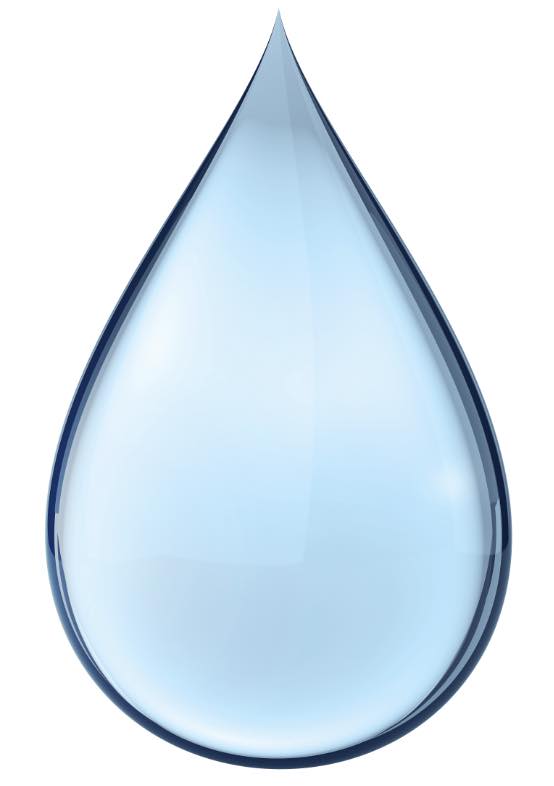
Are you alright now? Are you hydrated? If so, would there be any reason for you to drink now?
Of course, you could always force yourself to drink more, but how would that feel?
That wouldn’t let you feel joyful, would it?
Do you remember the last time when you were thirsty? I mean really thirsty. The thirstier the better. Perhaps it was on a scorching hot day, and you were out in the sun. Maybe the water supply at your home was cut off and you received the notice a tad too late. Perhaps you were on the road and didn’t have any liquids at your disposal and no gas station in sight for miles.
I remember I used to get really agitated every time I got past a certain level of thirst or hunger. I wouldn’t be able to think clearly or communicate in a friendly manner. Regardless of how you deal with the situation, being really thirsty is uncomfortable.
Now, just like the mosquito, we’re talking about a physical situation. However, physical discomfort doesn’t equate to mental discomfort. Nevertheless, when the body experiences discomfort, how do you typically feel mentally?
Most people would likely admit to feeling at least somewhat agitated. You might try to maintain a sense of calm, but in the background, there’s often a feeling of unease. This mental discomfort tends to intensify as the physical discomfort grows. So now, you’re not just thirsty, but you’re carrying both a physical and mental burden.
Picture yourself taking a leisurely stroll outside on a hot and sunny day. As time passes, you start to feel thirsty, realizing you have nothing to drink, and there’s no apparent place nearby to purchase water. You continue walking, hoping to find an opportunity to buy a drink.
With each step, you can sense a trail of sweat running down your back, and you feel the moisture evaporating from your brain. About 200 meters down the road, you spot a kiosk. In an act of desperation, you quicken your pace, your mind fixated on water. Arriving at the shop, you ask for a bottle of water, and the shopkeeper inquires, “Would you like a bottle from the fridge?”
In your exhausted state, you’re momentarily dumbfounded, thinking, “Can’t you see I’m practically melting away?! Of course, I need something cold!” Yet, all you manage to say is, “Yes, please!”
Well done for keeping your manners in a challenging moment.
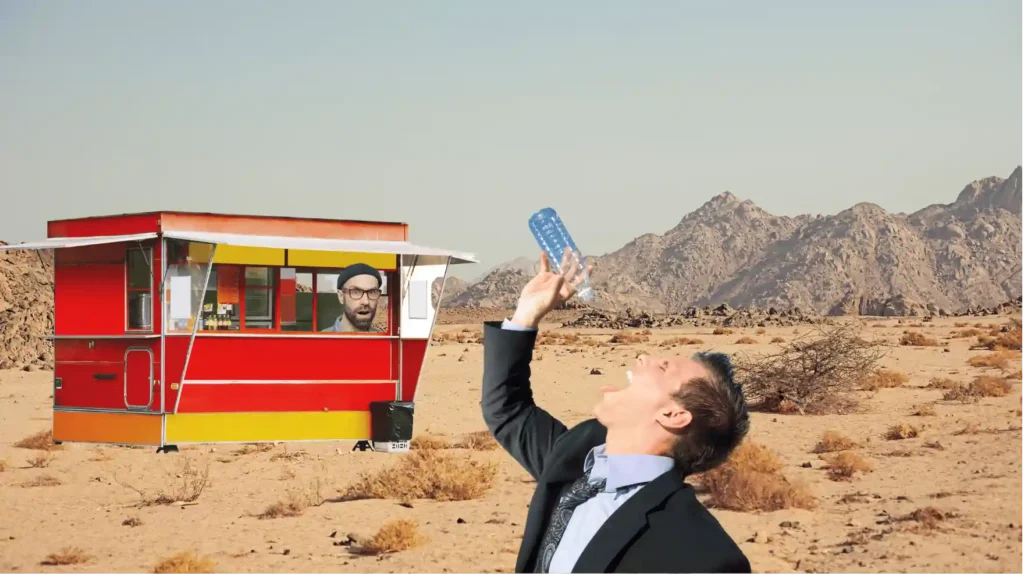
You hand over the money, and the shopkeeper gives you the bottle. As that initial stream of water touches your tongue, don’t you experience a sense of sheer delight? Isn’t it so wonderfully satisfying that it might be one of the best, if not the very best, moments you’ve had all day?
The Scratching vs Drinking Comparison
We’re going to summarize this example as well and compare it to our mosquito example:
- You’re content; not thirsty. There’s no need to drink.
- You’re outside in hot and sunny weather.
- You’re slowly dehydrating.
- Thirst kicks in (discomfort).
- Thirst intensifies (more discomfort).
- You find some water and drink it.
- You’re in heaven (extremely pleasurable).
- You’re relieved of thirst.
Can you see the similarities? If you can, we can start making some important connections.
Here’s the mosquito bite event’s summary for an easy comparison:
- Skin feels fine. Scratching feels uncomfortable.
- Mosquito lands.
- Mosquito bites.
- Skin feels itchy and uncomfortable (discomfort).
- You scratch.
- It feels good (pleasure).
- Itch is gone.
I’m going to give a few more details below. However, if you can establish some connections on your own first that would be more helpful. That’s because it is your mind that needs to come to a realization of what’s going on on a more profound level. When you’re ready, please continue below.
I’m going to add some additional info (in brackets) behind the individual steps now.
Mosquito bite adventure:
- Skin feels fine. Scratching feels uncomfortable.
- Mosquito lands.
- Mosquito bites.
- Skin feels itchy and uncomfortable (discomfort).
- You scratch (action).
- You feel good (pleasure).
- Itch is gone.
Quenching thirst quest:
- You’re content; not thirsty. There’s no need to drink.
- You’re outside in hot and sunny weather.
- You’re losing water.
- Thirst kicks in (discomfort).
- Thirst intensifies (more discomfort).
- You find some water and drink it (action).
- You’re in heaven (pleasure).
- No more thirst.
As you see, all the initial events lead up to some uncomfortable feelings. When that discomfort sets in, an action is required to experience pleasure. Then, there is no more discomfort.
In other words:
Discomfort→action→pleasure.
Do you notice how pleasure proceeds, not precedes discomfort?
This is the first critical link to realize.
The second critical link is that you have no more feeling of discomfort once you start feeling pleasure. Actually, the last two steps in the above events happen simultaneously.
In plain English:
Pleasure and the relief of discomfort happen at the same time.
The True Nature of Pleasure
This means that pleasure is the result of a discomfort being relieved.
It is not a feeling that comes in through any other way. Water and scratching cannot create pleasure. Otherwise, they would be able to do that under any circumstances. What they can do, however, is offer relief when an unpleasant feeling has arisen.
That creates the illusion that they are able to make you happy, as if happiness, or pleasure, is magically coming from the outside. That’s why the pleasure is greater, when the discomfort is greater. The more relief you feel, the better you feel. The significance of this is going to become clearer as we explore some other examples and examine a few more details. Don’t just accept it as truth.
Given that the two previous examples seemed to be more physical in nature, let’s shift our focus to situations where the mental aspect plays a more visible role.
As you read and contemplate, try to substitute the objects or scenarios I describe with something that resonates with you. You should be able to relate to the topic at hand as much as possible for the best result.
Let’s Buy Some Chocolate
Do you like chocolate? If not, replace chocolate with something else you enjoy. Whether that’s something sweet or salty, it doesn’t matter. Whatever floats your boat.
Picture yourself strolling down the supermarket aisle. You’re walking past the sweets section, and your eyes are scanning all over the place. You spot the chocolates. You know precisely what you like. Is it pure chocolate or milk chocolate? Does it have nuts or is it plain?
Now, imagine you’re standing right in front of those chocolates. If your imagination is working well and your stomach has even a tiny bit of space left, you might even start to salivate.
As you stand there, you decide you want to buy a treat to enjoy later. You can’t help but feel a touch of excitement as you look for your favorite to place in your shopping cart. You reach out and put it in the cart. Do you feel satisfied? Good.

Uh oh, hold on …
Your spouse notices what you’re doing, takes the chocolate out, and returns it to the shelf. “Stop eating this junk! We promised to buy vegetables only. Let’s get what we came for and go.”
I’m sorry about that. It appears your spouse is a tough cookie. But, since it’s already happened, let’s move on. How do you feel?
Let’s keep it simple and focus solely on the chocolate. Set aside any other thoughts like, “How could they treat me like a child and embarrass me in front of that old lady?”
Don’t you feel, at the very least, a sense of disappointment?
The Waiting Game
You wanted to take that chocolate home, so it’s natural to feel disappointed. You pout your lip and give them the “poor me” look. They start to feel guilty and say, “Alright, alright, but go for the darkest one; it’s not as bad.” Your smile returns as you put the chocolate bar back in the cart (unless, of course, you don’t like dark chocolate).
Now, let’s fast forward to when you’re at home, and you’re in the mood for that creamy chocolate. You break a piece or two off the bar and get comfortable.
But don’t take a bite just yet.
Place the chocolate in front of you and wait for a moment. We’re about to conduct another experiment.
Right now, you’re craving that chocolate, but instead of indulging, you’re going to observe your mind and uncover what’s truly happening within it. As long as you want that chocolate, you’re going to feel a bit unsettled. This can manifest as excitement, restlessness, or any form of uneasiness. I prefer to use the term “vexation” here, as it encompasses all kinds of unpleasant feelings.
“Hold on a second,” you may wonder. “Excitement is not vexatious. I feel quite happy when I’m excited.”
Let’s put this to the test. If excitement were genuinely pleasurable, then prolonging the waiting time to extend that excitement should result in increased pleasure. Otherwise, an inconsistency would arise, meaning that your view, or perspective, is not accurate.
Remember, we discussed the critical importance of view in several posts. Changing your view and perception is the only way to unconditional happiness since your view is the root of the thoughts and feelings you have.
So what happens when you wait?
By extending your waiting time, you actually start to feel more vexed. This isn’t more pleasurable but more uncomfortable and distressing!
Take a moment to observe this feeling of vexation as you sit before your creamy treasure. Notice how it intensifies as you wait.
Before taking that bite, pause and ask yourself these two questions:
- How will I feel when I eat the chocolate?
- Why will I feel that way?
Assuming the chocolate is in good condition and it’s a familiar brand, you likely have a clear idea of how you’ll feel when you taste it. However, the first question alone is meaningless until you consider the second question. That second question holds the key to realizing what’s really happening.
It’s safe to assume that you’ll likely experience a sense of pleasure or joy, as the creamy cacao melts on your tongue. But why do you feel so good? Take a moment to contemplate this question.
Normally, you’d be inclined to say that it is the chocolate that makes you feel good. Is that really true? Does the chocolate hold some pleasurable component?
Can Chocolate Make You Feel Good?

We’re going into a deeper analysis now, so take your time with it. There’s no need to rush. Although we’ll explore many more examples in future articles, you can actually apply this concept to anything in life when it comes to conditional happiness.
I’ve been using various terms such as pleasure and joy. The way we normally experience happiness is conditional, not unconditional: things, situations, and/or people need to behave in a favorable way before we can perceive happiness. Whenever we encounter something pleasurable from the outside, we perceive it as contributing to our overall happiness. So, I use words like pleasure, joy, and (conditional) happiness interchangeably in this context.
What is the best way to find answers?
By asking questions. Would you agree with that?
Therefore, let’s ask some questions.
You’ve had your first bite of chocolate, and it tasted good. Therefore, you also felt good, correct? Surely, you’d like to feel even better. So, why don’t you take another bite? And while you’re at it, take a few more bites. You know what, you might as well eat the whole thing.
If it is the external object that can give you pleasure, then you should be able to experience more pleasure the more you associate with it. In this case, consuming more chocolate should increase your pleasure.
But what actually happens as you eat more of it? You end up experiencing less, not more, pleasure. Furthermore, if you kept eating, you’d eventually start to feel very unpleasant.
Then, you can’t deny that the thing you believe can make you feel happy, can also make you unhappy. Happiness, or pleasure, cannot be found in anything. And neither can unpleasantness. These feelings arise only in the mind.
Consider when you were in the sweets aisle – your focus was solely on chocolate, not anything else. In other words, you desired chocolate more than anything else in that moment. Now, remember the old lady standing behind you? She chose a bag of gummy bears. It just so happens that she dislikes chocolate. If chocolate possessed an inherently pleasurable component, others, including the sweet old lady, would experience it. But that’s not the case.
Similarly, Granny’s beloved gummy bears might not bring you the same level of pleasure. In fact, let’s assume you hate them. However, does that automatically mean they will make you feel bad? Is there no way to derive pleasure from them under the right circumstances? If so, this would suggest that there’s nothing inherently good or bad about gummy bears.
Flipping the Script: When You Love What You Hate and Hate What You Love
Let’s imagine a scenario: You’ve stocked your shelves with chocolate because you absolutely love it. Besides, making frequent trips to the supermarket isn’t your thing, so having a convenient supply of your favorite treat at home is a logical choice.
But then, unexpectedly, disaster strikes. An earthquake shatters your street, and your neighborhood becomes completely isolated from the rest of the town. To make matters worse, a new breed of mutated mosquitoes carrying radioactive COVID has escaped from a nearby secret lab. Now, not only are you isolated, but you’re also informed that you can’t leave your house for your own safety. They estimate it’ll be a week before you can venture out.
Fortunately, you recently stocked up on groceries.
Oh, wait…
…you had plans to do your grocery shopping later today, and then the earthquake and mosquito incident occurred. Well, it’s a good thing you still have some food items in the fridge and freezer. You open the fridge and discover a shriveled-up carrot and a packet of sour milk that was presumably once fresh. Maybe there’s something in the pantry? As you wipe away the cobwebs, you realize you haven’t visited this cupboard in a while.
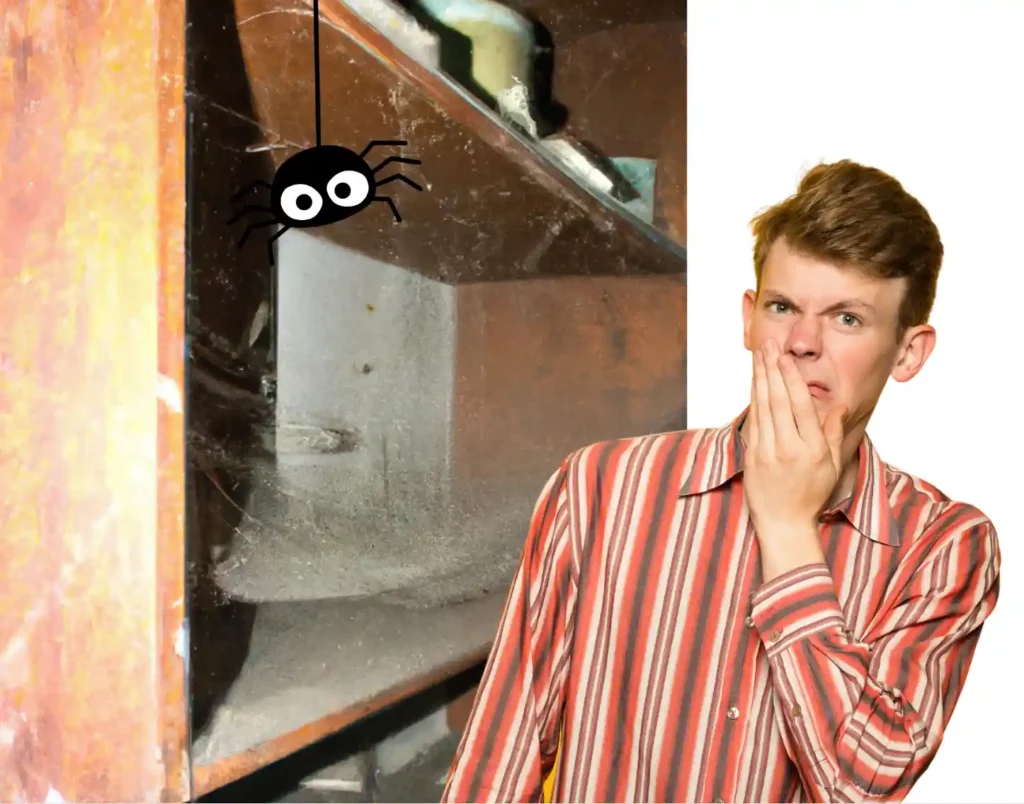
Not to worry, though, since you’ve stocked up on your favorite food. This should keep you fed for at least two weeks.
Your first day in isolation begins, and you think, “Mmm, chocolate for breakfast. That doesn’t sound bad at all!”
So, you kick things off with a sweet note. When lunchtime rolls around, you don’t mind having more chocolate. “I could do this every day!” you tell yourself.
But by dinnertime, you start craving something savory. You glance in your fridge, and the wrinkly carrot and pungent milk are staring at you.
“Maybe chocolate isn’t such a bad idea,” you convince yourself.
As the day comes to an end, you look outside and notice a sudden abundance of fireflies in your neighborhood, a sight you’ve never seen before. How peculiar.
After a good night’s rest, you wake up full of optimism, craving some porridge for breakfast. You grab a bowl from the cupboard and open the fridge. There’s a face-off with the sour milk. Before long, you surrender and break off half a chocolate bar to fill your bowl. Nausea starts to creep in.
As days go by, your dissatisfaction with chocolate grows. The wrinkled carrot and pungent milk become more and more appealing. When day 6 arrives, you tell yourself it’s almost over. Hope keeps you going, allowing you to eat chocolate without vomiting. But later that day, a news update shatters your hope:
“An unexpected hazardous event has occurred, making it too dangerous for our safety personnel to perform a rescue operation. We are working on a solution. Please remain indoors. You may open your windows between 1 and 3 p.m.”
“Dear god, how many more days of chocolate?!”
You start reflecting deeply on the value of life. But at least you can open your windows now. It’s 1 p.m., and you open your window. Your neighbor does the same, and your eyes meet.
“How have you been holding up?” you ask.
A concerned look crosses your neighbor’s face. “Surprisingly, I’m okay with the isolation so far, but I’m struggling immensely with the food. I’ve been surviving on gummy bears for the last five days.”
Your neighbor, Beth, happens to love gummy bears but despises chocolate. You, on the other hand, hate gummy bears. Unfortunately, you can’t help each other out.
Five minutes later, you’re heading back inside with a box of gummy bears, while Beth restocks her pantry with chocolate.
What just happened?!
Both of you disliked those food items, didn’t you?
All jokes aside, it’s only a matter of time before something like this would happen if circumstances allowed it.
No Vexation = No Pleasure
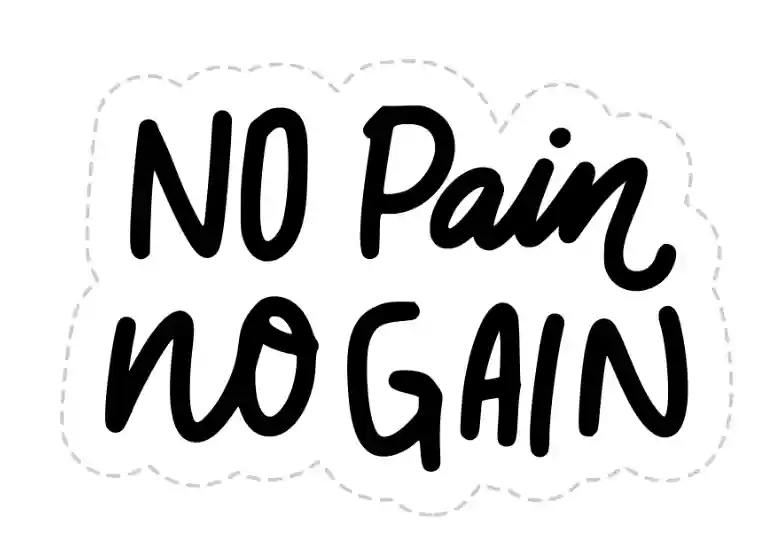
Even the very thing you believe brings you the most joy in life can make you feel the exact opposite. Therefore, the notion that something can inherently “make” you happy contradicts reality.
If a particular thing possessed the power to make you happy, and another thing lacked this ability, it would imply these items possess some unique and unchanging properties. In that case, they should consistently bring happiness, regardless of the circumstances, to everyone. And no one should ever tire of them.
Similarly, if something had the intrinsic power to make you unhappy, it should always have this effect, not just on you, but on everyone else as well. However, this isn’t what happens in reality. In fact, the very thing you believe makes you unhappy can even let you feel elated under the right conditions. This is why you turned to gummy bears, and Beth stocked up on chocolate.
This goes to show that even the things you despise can become pleasurable. So, how does this phenomenon work then?
Earlier I proposed to you that the feeling of pleasure or joy is nothing more but a relief of vexation. It’s crucial to verify this from all different angles.
When you were at the supermarket, eyeing the chocolate, you were feeling restless. If you had walked away without the chocolate, it would have been quite noticeable. But when you placed it in your cart, you experienced relief from some of that restlessness, or vexation. Then, your spouse removed it from the cart, and that vexation returned, making you feel worse, likely worse than before because it seemed you wouldn’t have any chocolate.
However, when your spouse agreed, you suddenly started smiling because that vexation was relieved once again. Back at home, when you desired that chocolate, the vexation manifested again. How do we know this? Because the anticipation you felt while having that chocolate in front of you increased when you chose to resist having it. This feeling became more and more uncomfortable. Finally, when you took a bite, you felt incredibly good because the discomfort, or vexation, had been relieved once more.
A pleasurable feeling cannot arise without a vexation being simultaneously suppressed, or relieved.
That’s why you feel good when you scratch a mosquito bite. Because at that moment, the uncomfortable itch is being relieved. That’s why water is so good when you feel dehydrated. The vexation, mental or physical, is reduced. Then, and only then, will you feel a sense of pleasure.
That’s why drinking water when you’re not thirsty, or scratching when you’re not itchy will never feel good. For that, a feeling of vexation needs to be present first.
That’s why you can only become joyful when you eat your favorite food when there’s vexation.
Alright, but what is the vexation then when we’re speaking about food?
To answer this question, take this very simple example:
- How do you feel when you’re slightly hungry?
- How do you feel when you’re a bit more hungry?
- How do you feel when you’re starving?
- How do you feel when you have just eaten?
In which of these four scenarios do you think the feeling of vexation is most intense? Under normal circumstances, vexation increases and peaks when you’re at your hungriest.
Now, imagine four people who all have a preference for the same food: one is not hungry, one is slightly hungry, one is hungrier, and one hasn’t eaten all day. They are all given the same food. Who do you think will derive the most enjoyment from their meal?
The average person who is starving is experiencing the most vexation. When that person gets to eat, there’s a sudden and significant reduction in vexation, resulting in a profound sense of enjoyment. What about the person who is not hungry? They have no vexation for food at that moment so they will not feel any pleasure if forced to eat. Quite the opposite actually: they’ll be vexing!
Remember the lists we used for the mosquito bite and thirst?
Here’s the mosquito bite one:
- Skin feels fine. Scratching feels uncomfortable.
- Mosquito lands.
- Mosquito bites.
- Skin feels itchy and uncomfortable (discomfort/vexation).
- You scratch (action).
- You feel good (pleasure).
- Itch is gone.
Instead of the term “discomfort,” we can also use the term “vexation.” Even though this discomfort is physical, there is also a mental vexation because you don’t want to feel itchy. The same applies to thirst; you don’t want to feel thirsty.
Now, let’s revisit the first chocolate example where you decided to go to the supermarket with your spouse. We’ll start by assuming that you eat the chocolate when you get home without conducting the waiting test. Recall that in the previous example:
- an event occurred;
- that lead to vexation;
- an action; and
- ultimately resulting in a feeling of pleasure.
Here are all the steps listed out for our supermarket example:
- Walking in the supermarket. No need for chocolate yet.
- Passed the sweets aisle and spotted chocolate.
- Want to eat chocolate.
- Put chocolate in the trolley (action).
- Feel nice (pleasure).
- Spouse puts chocolate back on shelf.
- Feel disappointed (vexation).
- You look sad and spouse agrees (action).
- Feel even happier now than when you take it (pleasure).
- Go back home.
- Want to eat chocolate.
- Take chocolate (action initiated).
- Eat the chocolate (action completed).
- Feel great (pleasure).
If you go through the list carefully, you may notice that something is missing. Try and see if you can establish the connections yourself as we proceed.
After the mosquito and water event, the core sequence was as follows: vexation→action→pleasure.
The chocolate event is a little bit more complicated, but as I mentioned, it has to follow a similar logic. There can be no contradiction. We can actually divide it into three main sequences. The first five steps consist of the first sequence.
- Walking in the supermarket. No need for chocolate yet.
- Pass the sweets aisle and spot chocolate.
- Want to eat chocolate.
- Put chocolate in the trolley (action).
- Feel nice (pleasure).
The next few steps make up the second sequence:
- Spouse puts chocolate back on shelf.
- Feel disappointed (vexation).
- You look sad and spouse agrees for you to take it again (action).
- Feel even happier now than when you took it (pleasure).
The final sequence includes the last steps:
- Go back home.
- Want to eat chocolate.
- Take chocolate (action initiated).
- Eat the chocolate (action completed).
- Feel great (pleasure).
As you can see, only the second sequence follows with vexation→action→pleasure.
What about the first and last sequences?
If they somehow don’t follow the same logic, does that not mean then that there is an inconsistency in this approach?
There is no inconsistency.
Look at the step right before the “action” step:
“Want to eat chocolate.”
“Are you trying to tell me that wanting chocolate equals vexation?”
The Happiness Paradox: Wanting = Vexation
Think about it. when you’re standing in front of the chocolate, how would you feel if you decided to walk away without taking it? In that moment, you could only experience a sense of relief by grabbing the chocolate because you felt that you needed it. This means that the moment the “want” for chocolate arose, you felt incomplete or dissatisfied. The only way to attain satisfaction and fill that void was by taking the chocolate. Feeling a sense of dissatisfaction is nothing more than vexation. Relief from that dissatisfaction is satisfaction. In other words, “wanting” is vexation!
Most people passing by that chocolate in the sweets aisle didn’t want any chocolate. They felt just fine not taking any chocolate. They felt fine because they had no desire for chocolate. Again, they did NOT want it, hence they had NO vexation related to chocolate.
The same line of thinking holds for the final sequence. The moment you wanted the chocolate, you started vexing. We discussed how you felt excited earlier, and we also touched on the fact that this excitement is essentially a form of vexation. You can test this by resisting the temptation and letting that excitement build up. Soon, you’ll notice that the excitement begins to feel highly vexing. This is because your desire intensifies. Excitement is merely a manifestation of what you yearn for. You can recognize this because when you don’t get what you want, the vexation increases!
We can easily verify this in another way as well. Let’s say you’d like to have some chocolate along with a hot cup of coffee. You and your partner have your coffee in front of you, and there’s also chocolate on the table. You’re craving chocolate, but your partner isn’t interested. Now, if for some reason you can’t eat the chocolate, who do you think will feel vexed? It’s clearly you, the one who wants it. Your partner, on the other hand, remains content.
Now, let’s switch the scenario. Say your spouse desires a cookie. The moment they start craving a cookie is the moment they begin to vex. They can only relieve that vexation by eating a cookie, and until they do, they won’t feel satisfied; something will feel incomplete. But what about you? You have no desire for a cookie, so you’re perfectly content.
Well, not exactly – you still want that chocolate.
As long as you feel that happiness is gained from the outside, a desire automatically arises to search there and acquire it. Whether we take something material or immaterial, the principle remains the same. Another way of saying this is, as long as you hold a view in the mind that happiness comes from external events, your mind will always generate thoughts in line with that.
In other words, your mind is always looking for specific sensory inputs to satisfy its desires – to “consume and digest” favorable sights, sounds, smells, tastes, physical sensations, and thoughts.
I hope you’re starting to see the paradox here. Even though we’ve covered in The Illusion of Beauty that none of these things hold happiness, and thus can’t offer genuine joy, you still pursue them. You’re stuck in an endless cycle of desire and fulfillment, wanting and getting, always trying to scratch the vexatious itch that is “wanting.” Unfortunately, the itch always comes back. It’s almost like an incurable rash.
Let’s explore other examples to further understand the intricacies of this issue and highlight how conditional happiness is simply an ongoing quest for relief from vexation. Realizing this very thing paves the way to genuine, unconditional happiness – just like how medicine cures a rash.
Is “Thank You” Good or Bad?
Take the following for example:
How do you feel when someone doesn’t say thank you after you’ve helped them or given them something?
In the culture I grew up in, like in many places around the world, this is considered extremely rude. People can even get angry when others don’t at least show some form of gratitude. We all learn from a very young age that you should say “thank you” when somebody helps you or offers you something.

I remember traveling in India and being out on the road a lot. Every once in a while, I observed people asking for directions. The person giving directions would point their finger somewhere, utter a few words, and the one asking would drive away without a single word in response. I couldn’t even detect a blink or any other sign of gratitude. I promise you, I tried really hard because I was simply amazed by it. Then, I’d turn my eagle eyes toward the individual who just gave directions. They’d surely feel bothered to some extent.
No, not a single twitch or blink.
I couldn’t help but feel admiration for the person giving directions. How could they be okay with that?
Of course, the only reason I felt like that was because I was indoctrinated in a certain way by the environment I grew up in. This is not to say that saying “thank you” is not a good thing to do. Neither is not saying “thank you“ a bad thing to do. It’s all a matter of perspective.
Having said that, showing appreciation or gratitude is nevertheless a good thing because it can help ease the other person’s mind by meeting their expectations when it comes to manners, thus reducing the accompanying vexation. This will become crystal clear in the next example we’re going to discuss.
Secondly, it also allows you to be conscious of someone else’s good deed and generate a sense of gratitude for it because when you express yourself you have no choice but to think of it, even if only for a brief moment. And thinking in this way is most definitely beneficial.
If you’re the one performing a good deed, it shouldn’t matter how the other person responds, though. As soon as you want other people to talk to you in a certain way, you’re setting yourself up for disappointment. That’s because now your happiness completely depends on their behavior.
Is that something you really want?
In Unconditional Happiness: The Pursuit Beyond External Factors, I discussed how we place our happiness in the hands of others. We become upset when they don’t conform to our expectations and then hold them accountable for our resulting disappointment and unhappiness.
This situation is akin to asking a friend with Parkinson’s (with no intention to offend anyone) to hold your new phone while you tie your shoelaces and then getting upset when they accidentally drop it.
The Door Dilemma: To Hold or Not to Hold?
When you extend a simple courtesy, like holding the door open for someone, you naturally expect to receive some form of acknowledgment, whether it’s a thank you or a friendly smile. When that doesn’t happen you start vexing.
Now, you might be thinking, “But you mentioned that vexation always precedes pleasure. When I open the door for someone and they say thank you, I only feel pleased. So doesn’t that mean that there was no vexation before that?”
This is a great question. As I’ve emphasized before, there are no exceptions to this principle. Any pleasure you experience is a result of vexation being relieved. Since desire (to obtain happiness in the outside world) itself is a form of vexation, it means you’re getting something you want.
The example of holding the door aligns with this exact same principle. However, there are subtle nuances that we need to address. By understanding these nuances, you’ll be better equipped to apply this fundamental concept to your everyday life and adjust your view that your happiness depends on getting people, objects, and situations to behave in the way you want.
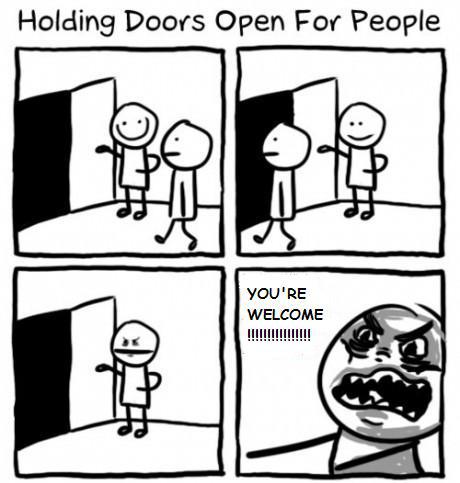
If you happen to know, please tell me so that I can add it.
In this famous meme, we can easily see what happens in the mind when the other party does not show appreciation. Despite its simplicity, it serves as an excellent tool for developing wisdom when examined objectively.
In the first frame, the “door opener” looks quite happy. He seems to have a good intention to help. However, at least partly, he thinks he’s getting a thank you and he may therefore feel a sense of anticipation which he confuses for something positive as well, as we discussed in the chocolate example.
We know he’s expecting a thank you when we look at the second frame. He wants that thank you, but at this point it seems that this desire may not be fulfilled, leading to the first visible sign of a vexation rising to the surface; his smile weakens after all.
In the third frame, it’s becoming clearer no appreciation is going to be shown. Therefore, the vexation intensifies.
In frame number 4, we see something interesting we must also address. That’s because there’s also a release of vexation, even though there’s not a single sign of pleasure to be seen.
But:
Don’t be fooled.
This may appear deceptive on the surface, but upon closer examination, we find that it is driven by the same underlying principle. We will delve into this shortly.
Now, let’s analyze each frame. In frame number 1, if the passerby were to express appreciation, the door opener would get what he wants, maintaining that pleasant smile.
In frame number 2, if the passerby were to reciprocate with appreciation, the door opener’s smile would instantly widen again.
In frame number 3, the door opener is already dismayed, sensing that appreciation may no longer be offered. However, if, by surprise, the passerby returns and says, “I’m so sorry, I wasn’t paying attention, thank you so much!” How do you think the door opener will feel in this moment?
His vexation will be relieved because it turns out he is still getting what he wants. It’s evident that the pleasure he experiences is a result of the relief of his vexation.
We do have to add here that his expectations might have shifted, and he might now be looking forward to an apology. In such a case, even a simple thank you won’t cut it unless it’s accompanied by an apology.
In reality, we harbor countless hidden expectations. While I try to keep it as straightforward as possible, there are instances where it gets a bit more complicated. In our future discussions, we’ll explore some more complex examples to demonstrate that vexation consistently comes before pleasure, and the relief of any vexation leads to the experience of pleasure.
In frame number 2, if a similar scenario were to play out, we’d see the same process. The vexation that initially popped up would immediately be suppressed, with the smile making a comeback and growing bigger. How much the vexation gets relieved completely depends on the response of the passerby and the expectation of the door opener. The closer the expectation is met, i.e., the more the door opener gets what he desires and the greater the vexation relief, the more pleasure he’ll experience.
Alright, but how does that explain that in frame number 1, if the passerby were to show his appreciation, the feeling of pleasure is still a relief of vexation?
Imagine as our door opener holds the door for the passerby, a whole crowd comes in from behind. As they are pouring in, warm smiles and words of gratitude graciously meet the eyes and ears of our friend. By the logic of a simple smile or thank you directly causing happiness, our door opener should be on cloud nine, experiencing boundless joy with each new entrant. It would be a never-ending parade of happiness, right? If he had no other responsibilities that day, he would never even want to leave that place.
In reality, the effect of these smiles and thank you’s would diminish over time. He’d grow tired, less sensitive to these gestures, and, eventually, reach a point where he might just throw the door in someone’s face if he were to stay beyond a certain point. That’s because he’s not experiencing a relief of vexation anymore. In fact, vexation is building if he stays too long, and then he’d have to leave just to relieve himself of that vexation. Quite ironic, isn’t it?
We don’t even need to go that far, though. The door opener is unconsciously looking for any sign of appreciation, as is obvious from frames 2, 3, and 4. If he wasn’t, he would simply keep smiling and be completely unaffected by the passerby. He would simply rejoice in the good deed that he’s engaged in.
You Don’t Search for Something Unless You’re Expecting to Find Something.
When you find what you’re looking for (or perhaps something else you happen to appreciate), i.e., you get something, anything you want, a feeling of contentment arises to some degree or another.
(You may be looking for gold but only find some silver. That’s still something you find valuable and you walk away a happy person even though you didn’t find what you originally sought).
That means that before that satisfactory feeling arose, the feeling of contentment was weaker, or perhaps even absent. So you’ll always go from a lesser content state to a more content state. If you’re not content in any way, then that is clearly a vexatious state to be in, but when you’re not fully content there is also vexation; it’s just not as strong.
Do you understand what I’m getting at? Discontentment in any form is vexation. So you can’t say that there’s no discontentment if you’re not 100% content. It’s not all or nothing.
The examples we’ve gone through illustrate this concept. If you’re only slightly thirsty, you’re not very discontent, but there is still some level of discontent because your desire for water isn’t completely satisfied. You achieve full contentment (temporarily) only when your thirst is quenched.
This is a subtle point that requires thoughtful reflection. Understanding the concept of unconditional happiness isn’t easy, and it takes time, patience, and effort to truly grasp it.
It all begins with the views we hold about life.
Your Views Create Your Desires
As I mentioned earlier, when I was traveling in India, I had the view that people should say thank you when someone helps them. Although many Indians do say thank you and consider it good manners, many consider it not a necessity. Their views are very different. That’s why the thought of thank you doesn’t come into their mind after someone gives them directions for example.
Similarly, if they were to provide assistance to a similar extent and the other person walked away without expressing gratitude, no negative thought would cross their minds, labeling the behavior as rude.

The thoughts that emerge in your mind are entirely shaped by the views you hold. Changing your views isn’t a quick or easy process and it doesn’t happen overnight. So, even if you don’t want to be bothered when someone walks past you while you’re holding the door, completely ignoring you, that doesn’t happen like that just because you want to.
You could make a conscious effort and try really hard, and, of course, that will make some change. But even then, you’ll still find other things that bother you. Instead of addressing individual events, we should tackle the issue at its root, ensuring we never lose sight of our happiness.
As long as you hold the view that happiness is out there, you’ll always run into problems. To change this view you must start seeing things as they are. When that change sinks into the mind, it will stop searching for something that is not there. That by itself is a liberating feeling.
If you have the view that people should behave in a certain way in order to make (your) life better, your mind will always be on the lookout to see this fulfilled. It always wants something. When an event occurs that contradicts this view, meaning you either receive what you don’t want or don’t get what you want, vexation intensifies.
This intensification leads to the emergence of negative or aversive thoughts, and you have no control over this process. It’s simply an effect resulting from the underlying cause: your view.
That’s why when events align with your view, meaning you get what you want, a pleasant thought arises because things are in harmony with your expectations, as per your view. You’ve found what you were seeking. In other words, you’ve obtained something you desired, and this has relieved your vexation. Unfortunately, that vexation will always have to be relieved again because your desire always has to be fulfilled again.
The Pleasure of Losing Your Phone
With a view that you need something to happen in order to feel good or better (mentally, not physically), you can never feel fully content. A mind that has the view that all the answers lie out there, will always believe it needs something from there and, hence, desires arise that need to be fulfilled.
From that state of discontentment, you can only find relief if you get what you want or desire. That is, unless the view changes and you see the truth: that nothing can ever offer happiness, not even Aladdin’s magic lamp. In a forthcoming article, I’ll dedicate the entire discussion to providing evidence for this claim – even wishes can’t bring happiness.
I know it sounds a bit far-fetched and hypothetical, but it helps you understand that even wishes, which only provide conditional happiness, are ultimately a dead end.
This understanding will help greatly with altering the mind’s view of happiness as you’ll be chiseling away the ignorance present in the mind.
Searching is vexatious. It is only when some kind of favorable result comes out of it, you feel a sense of relief and hence, a feeling of joy.
A bit further down, I will explain this in an example that may seem to not include any wanting or searching. Before I do, I’d like to provide an example that probably most can relate to. However, it might be helpful to first look at how wanting and searching are connected from a more simple perspective.
Searching and wanting go hand in hand. If you really want something, you search for it. You can only search if you want to find something. The definition of search, after all, is: “To move around in, go through, or look through in an effort to find something.”
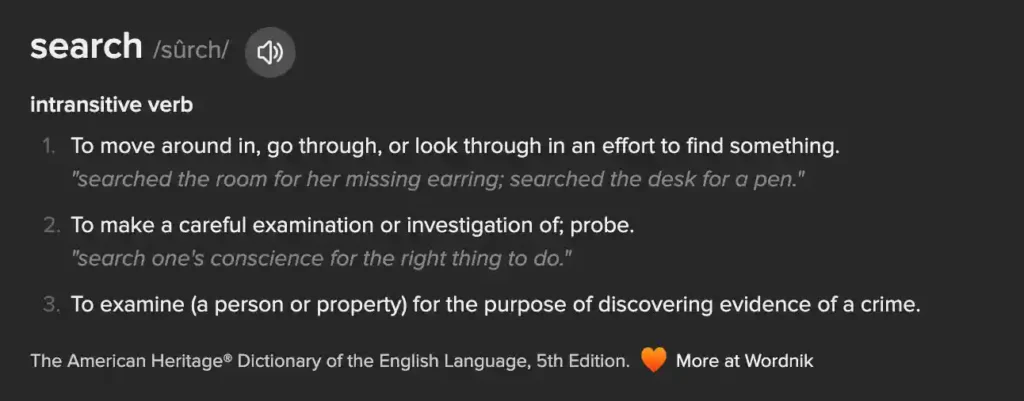
Now let’s look at a practical searching example.
Think about the last time you lost your phone somewhere. How did you feel?
Was that not unpleasant to say the least? This is again a perfect example to see the true nature of pleasure.
Let’s say you value your phone because it’s a new model or contains important data. When you realize your phone is missing, you begin to feel uncomfortable. You’ve just finished watching a movie, and as a responsible individual, you muted your phone and set it aside during the film. However, after leaving the theater and taking a short stroll, you realize your phone is nowhere to be found.
You start to panic. Thoughts race through your mind: “Did I back up my phone? What if someone takes it and accesses my personal data? How much will it cost to buy a new one? The time and effort required to set it up all over again!” You rush back to the theater and inform a staff member.
As you climb the stairs back to your seat, you’re feeling increasingly vexed. Your heart rate quickens. The seat comes into view, but your phone isn’t there. The vexation builds even more. Desperation sets in as you slide your hand under the seat, hoping to find it. Now, imagine how you would feel if it was not there. The anxiety grows.
But then, when you locate your phone, the sense of relief is overwhelming. It’s a profound feeling of pleasure, as all that pent-up vexation is instantly released.
You don’t need to lose your phone and let vexation reach such heights to understand that the pleasure you feel is essentially a relief of vexation.
I’m sure you’ve had similar experiences before. For instance, you might grab your phone, but it’s not where you expected it to be. You quickly check your pockets, purse, or other places, and after a few seconds of searching, you locate your phone. In that moment, you feel a sense of relief as well, although it may not be as intense as the relief from the previous example.
The difference in intensity of the relief, or pleasure, is directly linked to the level of vexation experienced. If we were to talk about vexation in the form of “units,” then we could say that the relief of 20 units of vexation results in an increase of 20 units of pleasure. That would be less than a relief of 50 units of vexation which is an increase of 50 units of pleasure.
A Pressure Cooker

Before we move on to the next part, remember frame 4 where the character shouts:
“YOU’RE WELCOME!!!!!”?
I mentioned that, too, is a relief of vexation.
“But you mentioned that pleasure is a relief of vexation. He is definitely not feeling any of that, so that seems wrong.”
That’s a good point, and it seems indeed to be true on the surface. But when we take a closer look we’ll find that’s not what’s actually going on.
Frame 1, 2, and 3, show clearly what’s happening. As he doesn’t seem to get what he wants, the vexatious pressure builds up. It eventually reaches a breaking point, leading to intense anger.
Now think of the last time you were angry. I mean really angry. Did you simply remain calm and collected? Suppose the source of your anger was someone present in the same room. If you’re furious, can you still keep quiet? Or do you need to vent, shout, or perhaps resort to some physical action?
See, anger is like pressure. Once that pressure reaches a certain threshold, it demands a release. It’s like a pressure cooker that needs to release steam. Unfortunately, when that takes place we often do something harmful, either to ourselves, to others, or both.
During these moments, it may feel like you have no other choice. Releasing that pressure is also a relief from vexation, though it may not feel pleasurable in the same sense we have talked about thus far. Nevertheless, you’ll feel better. You could call it “less bad,” since there’s still a strong vexation present, but we’re still talking about the same underlying concept.
Referring back to the “hold the door open meme,” in frame number 4, he is like a pressure cooker releasing pressure. But this relief could be short-lived if something or someone reminds him of the initial problem soon after. Then, all that vexation comes rushing back. When that happens, there’s a good chance he’ll want to vent to someone. Venting helps relieve that vexation to some extent.
That’s why, when your vexation is still quite strong, it could be beneficial to remove yourself from the object of your vexation when you have the opportunity to avoid doing something you might later regret when that vexation flares up again. For example, when you’re in an argument, you could distance yourself for a short time until you have calmed down enough so that you can communicate more sensibly.
However, this isn’t the ultimate solution. For that, you need to develop a deeper insight into why and how the mind reacts this way.
A Boring, Interesting, or Fun Party?
I promised we’d discuss an example that seems not to include any wanting or searching. So let’s delve into that now.
Amelia is getting ready to attend a party, but she’s not expecting anything in particular. She’s going because one of her friends invited her, and she’s pretty indifferent to the whole thing.
We’re going to imagine three different scenarios:
- Amelia spends some time chatting with her friend and has a few conversations with others. By the end of the night, she thinks the party was a bit dull.
- Amelia talks to her friend and engages in some fascinating conversations with others. When the night ends, she feels it was a good party with interesting people.
- Amelia and her friend start cracking jokes, making new friends who join in on the fun. They’re laughing and having a blast. When the night’s over, Amelia thinks it was an absolute blast with lots of laughter.
Amelia thought she didn’t have any particular “wants” when she went to the party. However, it is clear that she did. We’re going through the examples one by one now.
In the first example, Amelia felt the evening was quite boring.
What is boredom?
It’s simply one of the many ways to describe vexation.
Amelia looked back at the evening and couldn’t think of anything memorable. That means that her vexation wasn’t relieved. Actually, her vexation slowly grew as time went by when her “hidden” desires were not fulfilled. What hidden desires?
These are going to become more apparent in the next two examples.
In example 2, she had a few interesting conversations. That’s because she found that the topics were appealing. It’s possible that she didn’t expect to encounter people with whom she could have such conversations before she attended the party. She may even have expected NOT to meet any interesting people at all.
Nonetheless, she clearly values these engaging conversations. In other words, she still holds the view in her mind that this is valuable.
She got what she wanted in example 2 and she didn’t get what she wanted in example 1. In example 2, her “want” got fulfilled and that vexation was relieved. In example 1, it didn’t get fulfilled and that’s why there was still a vexation in her mind as was apparent from her boredom and dissatisfaction.
Of course, this is overly simplified. She also values other things, so we can’t say that the vexation in example 1 emerged just because she didn’t have any meaningful discussions that night.
We can see that from example 3 – she also enjoys a good laugh and a good sense of humor.
Again, she didn’t expect to have a blast that night. Yet, it so happens that she does value a sense of humor and, therefore, when jokes are made that fit that bill, she feels pleasant.
How can we see that laughing at a joke is also a relief of vexation?
In example 1, she didn’t hear any jokes, or have any interesting conversations, and so that vexation was not relieved. However, as soon as she experienced one of those, the vexation was suppressed. Most of us laugh at jokes. Now, please don’t think that I’m suggesting you have to stop laughing from now on, or that it’s somehow wrong. That is NOT what I’m getting at here.
That is actually not the right way to look at this at all. We only have to see the connection between our wants and vexation and see that we’re always in an endless search of relieving ourselves of vexation that accumulates over time.
I’m going to ask you a question that should make that connection crystal clear. Observe the feeling that’s going to arise in your mind when you read the question below:
How would you feel if you could never laugh at, or hear, any more jokes for the rest of your life?
What feeling arises in your mind right now? Is it not something vexatious?
If it is, that shows how much value the mind places on humor. That means your happiness depends on it. Again, humor is not a bad thing.
In fact, for most of my life, I valued humor more than anything else, so I speak from personal experience. The problem does not lie in humor or jokes themselves. The problem is that without it, you can’t be happy.
I Always Failed, Just Like You
Just like all the examples we’ve discussed throughout this article, we can prove that happiness is not embedded in humor or a joke. If it was, you should not be able to get enough of it. But there comes a point when you want to talk in a more serious manner. Or you don’t want to talk at all.
If you don’t want to talk, or want to talk about a more serious topic, you don’t want to hear any jokes. That would actually make you feel annoyed.
I used to like to go to parties. For me, a successful party was when people laughed at a few of my jokes. So when that happened I would feel: “This party was a big success.”
But it never actually made me happy. It only temporarily relieved me of my vexatious mindset that craved for people to laugh at my jokes.
How do we know?
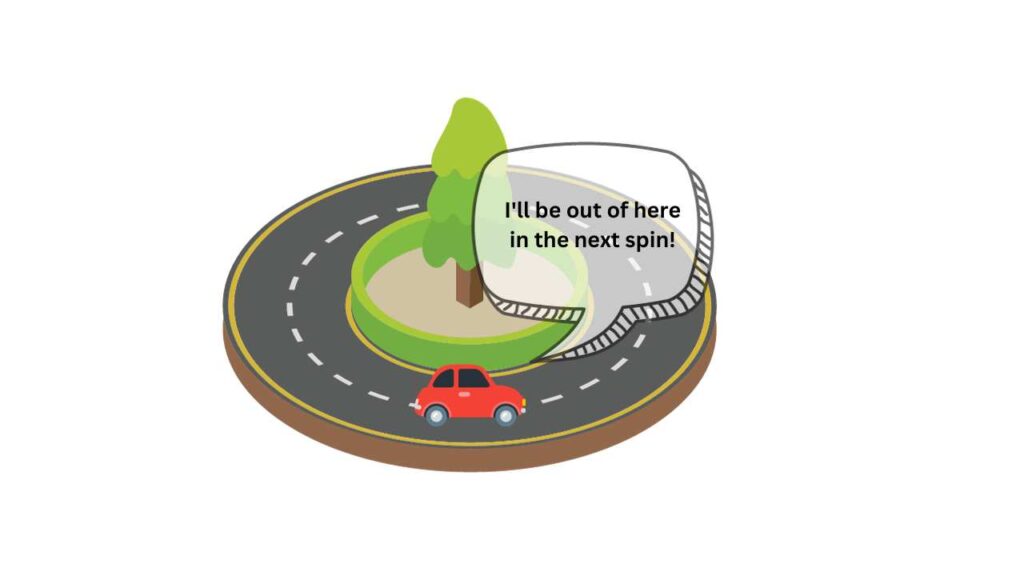
Simple.
The next party I went to, I wanted it again.
What about the party after that?
Again.
And again. And again. If it was able to make me happy, then why did I have to keep doing it? Why did I not actually become happy?
Why have I never managed to declare at the end of a party:
“I’ve made it! I’ve achieved happiness! There’s no more need for me to keep attending parties and cracking jokes in order to reach that goal.”
You can’t fill a bucket that has a hole in the bottom. That’s why you need to keep refilling it with no end in sight.
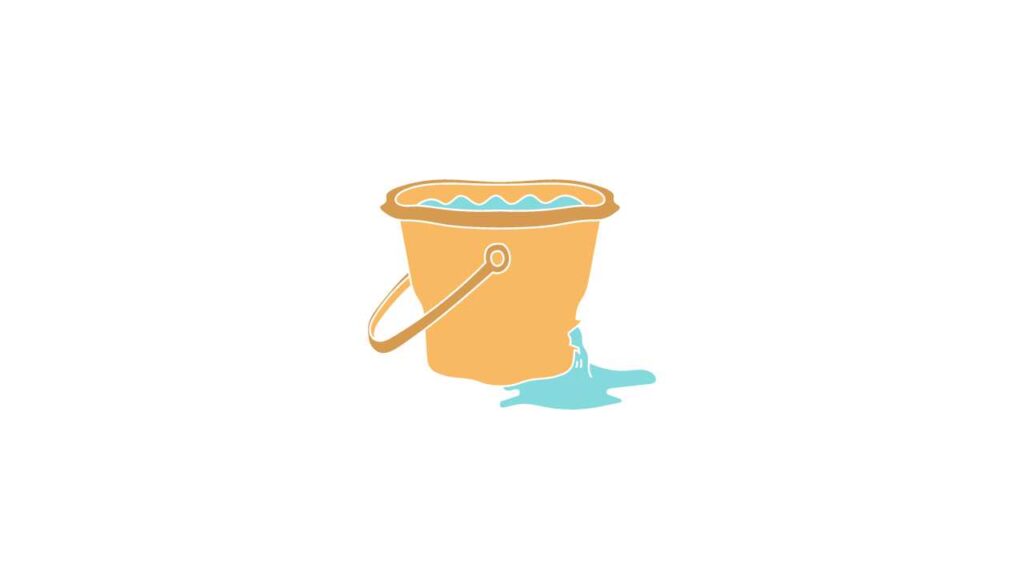
What if I didn’t have that desire? Would I still feel bad if people wouldn’t laugh at my jokes?
Since I came across the truth of how the mind actually works, my views have changed. I still make the occasional joke, but it won’t dictate how I feel at the end of the day. So, if I have to attend a party for whatever reason, I am perfectly fine if I don’t make a single joke or if nobody laughs at my jokes.
Just to emphasize my previous point, attending parties and making jokes are not bad things to do. The problem lies in trying to extract genuine happiness from them. If that is what you’re trying to do you will always fail, just like I did.
Nowadays, I don’t have the same desire anymore. I feel much better regardless of how a party goes. The only thing that changed was my perspective. At no point did I ever let go of anything. I simply came to a realization. That’s why my mind doesn’t produce the same vexatious thoughts it once did. It feels like a massive burden has been lifted off my shoulders.
A desire (aimed at seeking favorable sensory inputs in the outside world) is a burden. It is a void that always seeks to be filled.
When that fulfillment does occur, it might not feel like a burden or void any longer, but in reality it still is. It’s similar to a bucket with a small hole – it won’t empty all at once, but with enough time, it inevitably will. Then, the endless search for fulfillment starts all over once more.
We can also compare the desire to find happiness and satisfaction from the outside world to carrying a heavy backpack on your back. Every time you get what you want, it’s like taking a break on a bench. It feels like a relief because the bench helps carry some of the weight from your backpack.
But the backpack is still there, on your shoulders.
You eventually get up from the bench and keep walking. After a while, you start feeling the burden again, and you need to rest by sitting down.
This is exactly what you’re doing in your life. You constantly look for moments to sit down and find relief from carrying your burdens. When you have a chance to sit down, you feel better, and life seems good. However, just sitting down can’t provide the lasting happiness you’re searching for. That’s why, before long, you get up and start walking with your burden once again. This cycle continues until the burden becomes too heavy, and you need to sit down once more.
When are you finally going to take off that backpack?
That happens when you understand that you’re carrying a backpack in the first place.
In other words, you need to change your view, your perspective, and understand what’s truly going on. But that view won’t change unless you turn your head and see what’s going on behind you. If you feel burdened but aren’t aware you’re carrying a heavy bag, how on earth are you going to remove it?
In reality, this doesn’t happen overnight. It’s almost as if that backpack is secured to your back with a mechanism resembling Chinese finger traps that progressively tighten their hold as the load gets heavier.
So, start by unpacking the bag little by little. As you do this, your life journey will get lighter and lighter. It’s not easy to do this while the bag is still strapped to your back, and it takes some effort. But you’ll find that the effort is well worth it as your load becomes lighter with every step. Eventually, the bag becomes light enough to let go of it completely.
My goal is for you to experience this change, which is why I’ve dedicated this website solely for this purpose.
Happiness Exercise
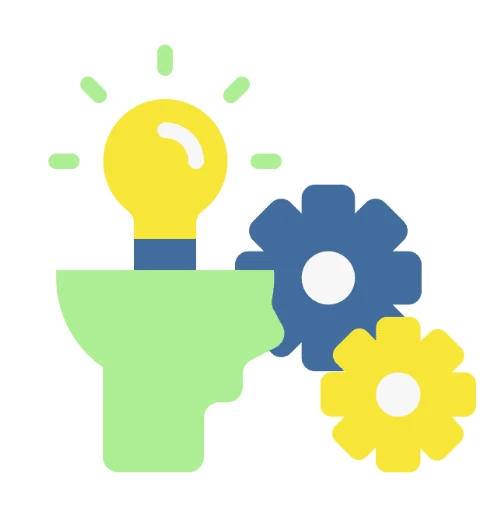
Introduction
This exercise helps you develop the view that happiness is not out there and that the pleasure you experience when you come in contact with favorable sense inputs is nothing more than a relief of vexation. Because happiness is not out there, this search can never stop and that’s why you can never get rid of vexation.
Vexation is actually the manifestation of the view you currently hold that happiness is to be found in the outside world. Putting aside things you actually need to sustain yourself, you always think you need other things in order to be happy.
Thoughts are the result of whatever view the mind holds. When the view, or causes, change, the resulting effect naturally aligns with that change. Therefore, you’re removing the causes for vexation to arise when you start cultivating the correct view of happiness. So, you’re not actually removing vexation itself. Vexation is a manifestation, or the result, of causes. The cause is ignorance of the true nature of the mind and ignorance of true happiness.
The goal of this exercise is to remove the causes for unhappiness by developing a realization of the true nature of the above. True mindfulness is not just being aware in the present moment; it is being aware of the truth in the present moment. This is not how mindfulness is practiced nowadays, though.
How to get started?
In the last article, I asked you to reflect on a few questions that you can ask when coming into contact with things you like. Through that reflection, you’ll come to realize that happiness can never be part of any sensory input, whether it’s something you see, hear, smell, taste, touch, or the thoughts that stem from these experiences.
This is a follow-up of that exercise. First, it needs to become clear that no sensory input can truly provide happiness. Then it needs to become clear that any pleasurable feeling that you experience after coming in contact with a sensory input arises because the search for that input has temporarily stopped. Hence, the accompanying vexation gets relieved. Of course, only temporarily.
The vexation consistently returns because the underlying view still holds that happiness is derived from these sensory inputs, which is not the case.
When you start realizing that the pleasures and the joy you experience in life are nothing more than the relief of a persistent vexation, vexation will naturally start decreasing. That’s because you understand that happiness cannot be extracted from outside objects, people, and events, and you start realizing there is no void that needs filling.
Remember, we are on a journey of realization. You can’t force the mind to realize. It has to come through understanding and reflection.
For this exercise, it’s most beneficial to choose an event from your daily life where you experience joy or pleasure yourself.
In the beginning, you might not be fully aware of how your mind constantly seeks relief from vexation, especially when the vexation is relatively mild. (In future articles we’ll discuss this more deeply). As mentioned before, when you’re only slightly thirsty, the vexation is subtle, and you might not even notice it when your attention is focused on other things.
Therefore, it’s more effective to choose something where both the pleasure and vexation are more noticeable. It could be a situation like returning home after a day of work and really wanting to sit down and watch TV, or having a strong craving for a particular snack, or a strong desire to listen to a specific song.
Ideally, you start the exercise when you have not yet relieved yourself of the vexation. However, it is always possible to reflect on it afterward, so don’t worry if you realize it too late. It’s still a realization, after all.
How to Practice
Regardless of the sensory inputs involved, here are the steps you can follow:
- Say you want to watch TV. When you feel the “want,” it’s important not to give in immediately. Use this as an opportunity to develop your wisdom. Sit in front of the TV and observe the unsettling feeling. If you just want to watch TV and there are no distractions around, then the vexation will naturally grow, resulting in your desire intensifying. Feel how the vexation and the desire both get stronger.
- Now you’re going to relieve yourself of the vexation by fulfilling the particular desire. In our example, that means switching on the TV. As you do, notice how that vexation gets relieved.
- Notice how it feels. You feel better now. This is what pleasure is: a relief from unpleasantness, dissatisfaction, or, simply put, vexation.
- Go through these steps mentally as much as needed and try and see how pleasure did not come from the outside but was merely the reduction of an unpleasant feeling.
We will build on this exercise in the future. You can apply these steps to anything.
Whenever you want to snack on something, whenever you want to see something or someone, whenever you want to listen to something or someone, whenever you want to smell something or someone, whenever you want to touch or feel someone (this doesn’t have to be something sexual).
Although I’m not asking you to abstain from anything, please make sure that whatever you do does not involve harming someone. That is the only exception.
Conclusion
It’s vital that you begin to understand how you experience happiness in the light of truth. As long as you rely on things, people, or specific situations to behave in a particular way for you to feel happy, you’ll remain in a constant state of seeking. This ongoing search leads you to continually desire things just to briefly ease the vexation caused by this pursuit.
When you do manage to alleviate the vexation you’re experiencing, you feel a sense of joy or pleasure. However, it’s essential to realize that this joy doesn’t originate from external sources, as I’ve explained in this and the previous article. Instead, what occurs is that your discontentment or vexation is momentarily relieved, and this is what you interpret as pleasure and joy. It is entirely a mental fabrication.
This pattern is how the vast majority of people perceive happiness – as a temporary relief from vexation. It’s a relentless cycle with no apparent end, as long as vexation persists.
To break free from this cycle and, more accurately, to eliminate the root causes of vexation, the mind must absolutely comprehend that true happiness doesn’t reside in the outside world. In other words, you must cultivate an objective view. As the mind begins to cultivate this perspective, vexation gradually fades away because the ceaseless search for satisfaction starts coming to an end.
And when vexation is not merely relieved but actually going away for good, that’s when you can begin to experience TRUE satisfaction and TRUE happiness – unconditional happiness.

